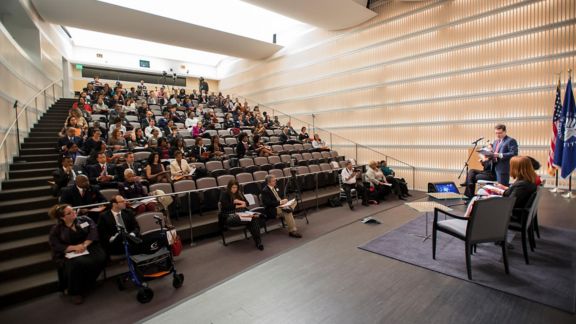COVID-19 & Obesity Survey

Problem
Health professionals needed data on how COVID-19 affected perceptions of obesity risks and treatments.
NORC at the University of Chicago conducted a nationwide poll of 1,714 adults for the American Society for Metabolic and Bariatric Surgery (ASMBS) from December 10-28, 2021. The poll took place roughly two years into the COVID-19 pandemic and five years after the two organizations partnered on their first national survey on the American public’s perception of obesity as a public health threat. Our study sought to assess the public perceptions of obesity, its risks, and its treatments, with particular attention to the pandemic’s impact on those attitudes.
Solution
NORC polled Americans on whether COVID-19 changed their obesity and weight loss concerns.
The study found that 38 percent of Americans see obesity as a larger risk to a person's health than they did before the pandemic. Thirty-nine percent of adults who have tried to lose weight in the last year or are currently trying to lose weight cited COVID-19 as a reason. Those who have tried to lose weight in the last year or are currently trying have considered weight-loss surgery or using prescription medication for the first time during the COVID-19 pandemic.
Result
Americans now view obesity as more of a threat—but have misconceptions about treatments for it.
According to the study, Americans rank obesity alongside cancer as the top health threat facing Americans, with 82 percent saying obesity was as serious as cancer. Three-quarters believe a lack of willpower is the leading cause of obesity despite scientific evidence to the contrary. Also, misconceptions about obesity treatments are pervasive, with 73 percent of Americans thinking diet and exercise alone are more effective than weight-loss surgery.
Related Tags
Project Leads
-
Jennifer Benz
Senior Vice PresidentProject Director -
Trevor Tompson
Senior FellowSenior Staff








